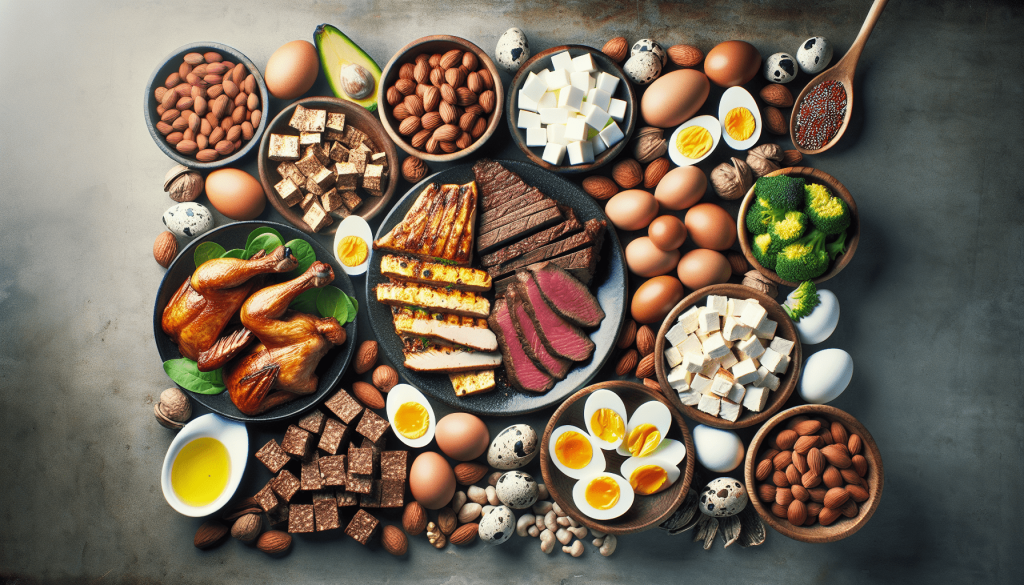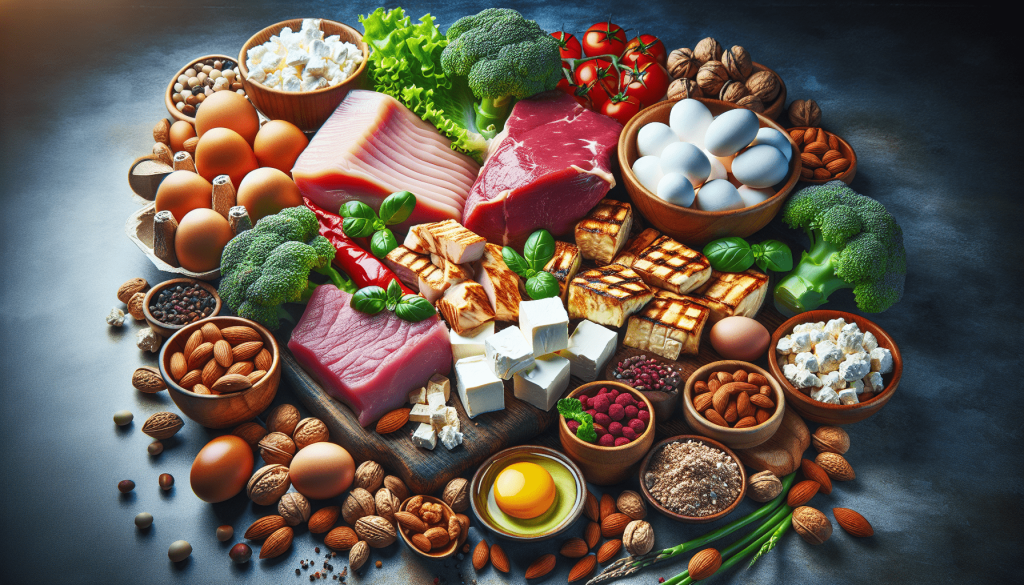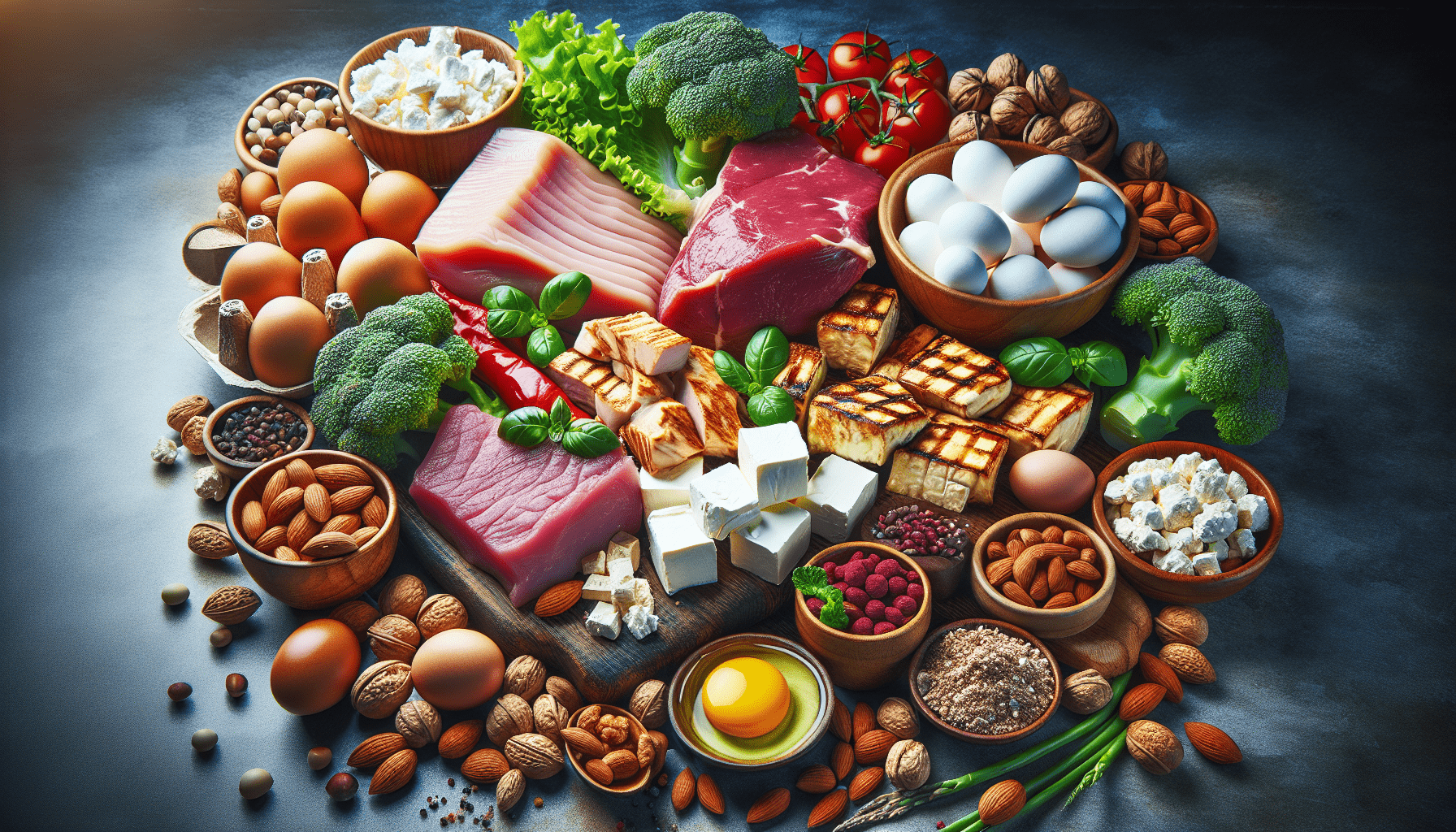Welcome to “The Ultimate Guide to Keto-Friendly Protein Sources!” In this comprehensive article, you will discover the best protein sources that are perfect for your ketogenic diet. From tasty meats and seafood to plant-based options, you will find everything you need to reach your protein goals while staying in ketosis. Say goodbye to bland meals and hello to delicious and nutritious options that will keep you feeling satisfied and energised on your keto journey. Let’s dive in and explore the wide array of protein sources that will help you thrive on the keto diet.
The Ultimate Guide to Keto-Friendly Protein Sources
Have you been struggling to find the right protein sources that fit your keto lifestyle? Look no further! In this ultimate guide, we will explore the best keto-friendly protein sources to help you stay on track with your diet goals. From meat to dairy to plant-based options, we’ve got you covered. Let’s dive in!

Why Protein is Important on a Keto Diet
Protein is an essential component of any diet, but it is especially crucial on a ketogenic diet. Protein helps you feel full and satisfied, which can prevent overeating and promote weight loss. Additionally, protein is essential for building and repairing tissues, making it a critical nutrient for muscle growth and overall health. Ensuring that you are consuming an adequate amount of protein is essential for success on a keto diet.
How Much Protein Do You Need on a Keto Diet?
The amount of protein you need on a keto diet can vary depending on your individual goals and activity level. However, a general rule of thumb is to aim for around 0.8-1.2 grams of protein per kilogram of body weight. If you are more active or looking to build muscle, you may need to aim for the higher end of that range. It’s essential to listen to your body and adjust your protein intake accordingly.
Best Animal-Based Keto-Friendly Protein Sources
Animal-based proteins are a staple of the keto diet, as they are typically low in carbs and high in protein. Here are some of the best animal-based keto-friendly protein sources:
| Protein Source | Protein (g) per 100g | Fat (g) per 100g | Carbs (g) per 100g |
|---|---|---|---|
| Chicken Breast | 31 | 4 | 0 |
| Salmon | 25 | 13 | 0 |
| Steak | 36 | 8 | 0 |
| Eggs | 13 | 11 | 1 |
If you’re a meat lover, these animal-based proteins are perfect for keeping you satisfied and helping you meet your protein goals on a keto diet.
Best Dairy-Based Keto-Friendly Protein Sources
Dairy products are another excellent source of protein for those following a keto diet. However, it’s essential to choose full-fat and unsweetened options to keep your carb intake low. Here are some of the best dairy-based keto-friendly protein sources:
| Protein Source | Protein (g) per 100g | Fat (g) per 100g | Carbs (g) per 100g |
|---|---|---|---|
| Greek Yogurt | 10 | 7 | 3 |
| Cottage Cheese | 11 | 4 | 3 |
| Cheddar Cheese | 25 | 33 | 1 |
| Mozzarella Cheese | 22 | 16 | 2 |
If you’re a fan of dairy, these options are great for adding variety to your keto diet while keeping your protein intake up.

Best Plant-Based Keto-Friendly Protein Sources
For those following a vegetarian or vegan keto diet, plant-based protein sources are essential. While it can be more challenging to get enough protein on a plant-based keto diet, it is possible with the right choices. Here are some of the best plant-based keto-friendly protein sources:
| Protein Source | Protein (g) per 100g | Fat (g) per 100g | Carbs (g) per 100g |
|---|---|---|---|
| Tofu | 8 | 5 | 2 |
| Seitan | 25 | 1 | 4 |
| Tempeh | 19 | 11 | 9 |
| Almonds | 21 | 49 | 4 |
If you’re following a plant-based keto diet, these protein sources can help you meet your protein needs while staying in ketosis.
Creative Ways to Incorporate Keto-Friendly Protein Sources
Incorporating protein into your meals and snacks doesn’t have to be boring! Here are some creative ways to include keto-friendly protein sources in your diet:
- Add grilled chicken or salmon to your salads for a protein boost.
- Snack on hard-boiled eggs or cheese sticks for a quick and easy protein fix.
- Use tofu or tempeh in stir-fries or salads for a plant-based protein option.
- Make a protein-packed smoothie with Greek yogurt, protein powder, and almond milk.
Get creative in the kitchen and experiment with different protein sources to keep your meals exciting and satisfying.
Supplementing with Keto-Friendly Protein Powders
If you’re struggling to meet your protein goals through whole foods alone, consider supplementing with keto-friendly protein powders. These powders are typically low in carbs and can be easily added to smoothies, shakes, or baked goods. Some popular keto-friendly protein powder options include whey protein isolate, collagen peptides, and pea protein.
Protein powders can be a convenient and effective way to boost your protein intake on a keto diet, especially for those with higher protein needs.
Tips for Choosing the Best Keto-Friendly Protein Sources
When selecting protein sources for your keto diet, keep the following tips in mind to ensure you’re making the best choices:
- Choose lean cuts of meat to keep your fat intake in check.
- Opt for high-quality, organic, and grass-fed animal products whenever possible.
- Check nutrition labels for added sugars and hidden carbs in dairy products.
- Rotate your protein sources to get a variety of essential nutrients and prevent boredom.
- Experiment with plant-based proteins to keep your meals diverse and interesting.
By following these tips, you can make informed choices that align with your keto goals and preferences.
In Conclusion
Protein is a vital nutrient on a keto diet, helping you feel full, build muscle, and maintain overall health. By choosing the right keto-friendly protein sources like animal-based proteins, dairy products, and plant-based options, you can meet your protein needs while staying in ketosis. Get creative in the kitchen, supplement with protein powders when needed, and follow our tips for choosing the best protein sources to support your keto lifestyle. With these strategies in place, you’ll be on your way to success with your keto diet. Happy eating!
